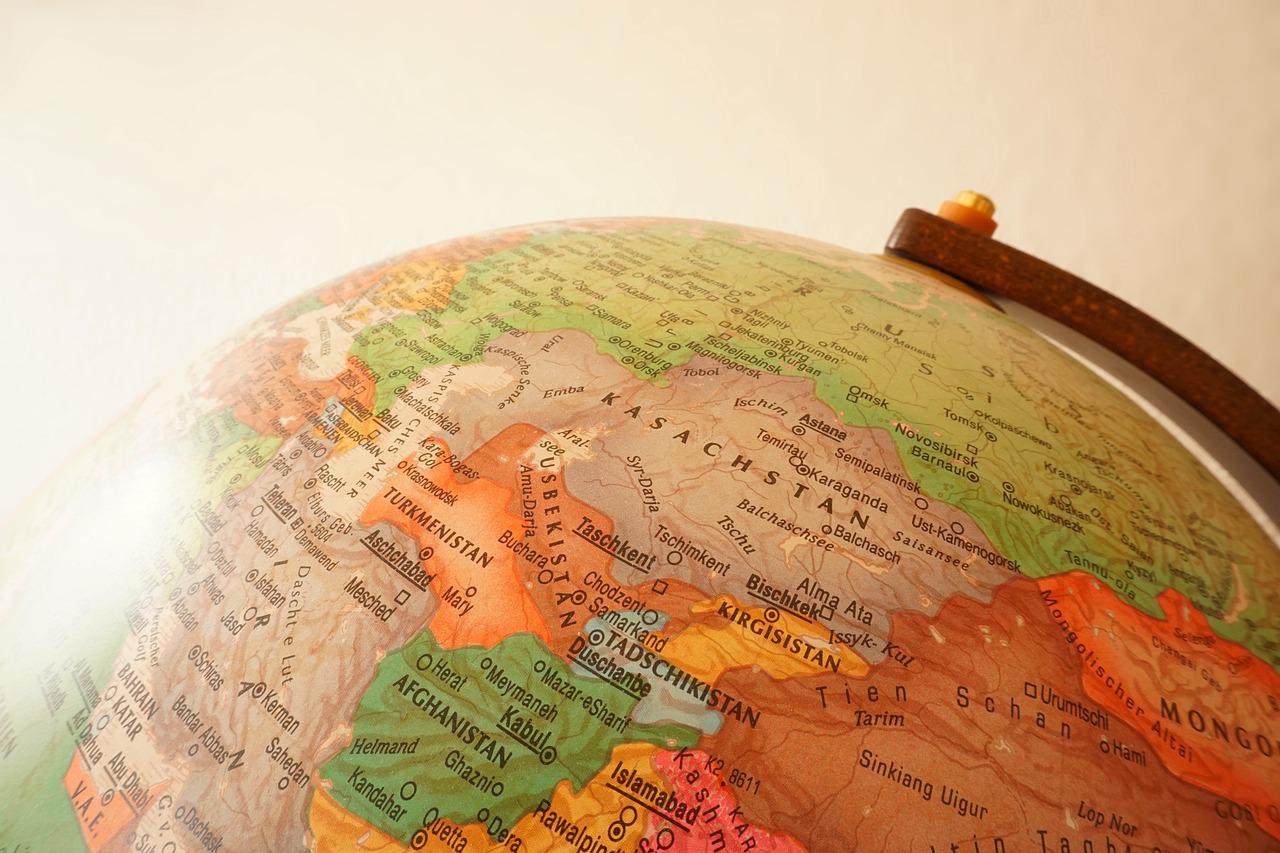For the first time since the days of the Russian empire, Central Asia is moving away from Moscow’s influence. Many Central Asian countries have opposed Russia on Ukraine, and China and Turkey are stepping up to fill the power vacuum. But India is still curiously absent and unable to compete.
On 24 February 2022, the world fundamentally changed when President Vladimir Putin of Russia announced an invasion of Ukraine.
The decision destabilised the global status quo: For years, Europe as a continent had moved on from full-scale warfare and the new centre of geopolitical tension was China. Policymakers, across the world, had failed to gauge the extent of Putin’s expansionism. Despite his illegal annexation of the Crimean peninsula back in 2014, countries like Germany were hooked to Russian gas and the UK was home to the dark money of Russian oligarchs.
The miscalculations didn’t end there. While most analysts expected Ukraine to fall within weeks at best, the conflict is now well into its fourth month. The chaotic affair, in a world already stressed by the pandemic, has forced every nation to fend for itself. Some like Sri Lanka have already collapsed under the crushing weight of debt while others like Turkey face unprecedented inflation.
Geopolitics has started reflecting this reality. Germany has started militarising, NATO has a new purpose, China-Russia engagement has shot up, and the Middle East’s cold tensions are subduing.
The only region that hasn’t made headlines in terms of dramatic shifts in foreign policy are the former Soviet republics of Central Asia: Kazakhstan, Uzbekistan, Kyrgyzstan, Turkmenistan and Tajikistan. All of these countries are under authoritarian regimes which draw patronage from the Kremlin. With the Ukraine war, Putin doesn’t have either the time or the resources to keep these regimes afloat.
Smelling blood, neighbours like Turkey and China have moved in rapidly to fill the power vacuum. This includes increasing defence engagement, accelerating decadal goals and bolstering trade talks. The region is going through unprecedented churn, which includes — for the first time since the days of the Russian empire — the possibility of it moving away from Moscow’s diktats.
India’s Central Asia Engagement
Post independence, India’s primary engagement with Central Asia was largely defined by its two western neighbours — Pakistan and Afghanistan. During the 1990s, Central Asian countries played an important role in maintaining the anti-Taliban coalition — the Northern Alliance. India had supported the group in order to keep a check on terror threats from the Taliban regime.
However, as New Delhi has expanded its worldview, the former Soviet republics are now approached with more evolved goals. They are now looked upon as a means to diversify energy sources and as an overland route to Europe. Apart from this, Central Asia also has huge deposits of rare earth elements, hosts one of India’s few overseas military bases (in Tajikistan) and is among emerging markets where Indian businesses can grow.
This changing attitude was reflected in India’s Connect Central Asia policy of 2012. The idea was to bypass the Russians and have a more independent relationship with the region. The primary problem with that policy was establishing connectivity with the region, given that it is landlocked and Pakistan blocked New Delhi’s access. This challenge was addressed by the Ashgabat agreement and investments in the Chabahar Port and the International North-South Transport Corridor.
However, because of sanctions on Iran, the projects have faced multiple delays. In the meantime, China has kept increasing its influence in the region on the back of its Belt and Road Initiative.
Russia’s Loosening Grip
Since the beginning of the conflict, Central Asian countries have maintained strategic neutrality, leaning away from the Kremlin. In March itself, Uzbekistan’s then foreign minister Abdulaziz Kamilov called for the territorial integrity of Kyiv, saying, “We recognise the independence, sovereignty and territorial integrity of Ukraine.”
Kazakhstan went even further. The first deputy chief of staff of the President’s Office, Timur Suleimenov, said: “Of course, Russia wanted us to be more on their side. But Kazakhstan respects the territorial integrity of Ukraine. We did not recognise and will not recognise the Crimea situation and neither the Donbas situation because the UN does not recognise them. We will only respect decisions taken at the level of the United Nations.”
Even amongst Central Asian nations, Kazakhstan’s position stands out. Kazakhstan shares a land border with Russia and is fairly resource-rich, making it about as important as Ukraine in terms of Moscow’s sphere of influence. And earlier this year, when Kazakhstan witnessed massive protests because of inflation and popular resentment, it was Russia who helped the regime get the situation under control.
Putin has failed to show that he has unquestioned support from the region. Almost immediately after the invasion, Kyrgyzstan, Tajikistan and Uzbekistan disputed Kremlin readouts of bilateral presidential phone calls which had hinted at great support for the Russian cause. This was followed by almost all the countries either abstaining or voting in favour of the 2 March and 24 March United Nations General Assembly (UNGA) resolutions condemning the invasion. Other countries which are perceived as close to Moscow — Belarus, Syria and North Korea — voted against the resolution.
What India Must Do
Russia’s decline has left a power vacuum which is rapidly being filled by Turkey and China. Turkey has offered to be a new mediator between Central Asia and the West and is also pushing its defence equipment such as the Byraktar drones.
Beijing wants to use Central Asia as a route to connect with Europe. With Russia’s economic free fall, China has emerged as a stronger replacement. Even Iran has presented itself as an alternative to the region, in case they don’t want to be exclusively dependent on one major player.
India seems to be the only country of consequence in the neighbourhood which has not acknowledged the new reality of the region. Despite having a fairly active relationship with the region, India has not made any fresh attempts to reach out. With the West retreating from the region post the Afghan war, India might end up friendless in the resource-abundant area.
This can prove to be disastrous, given radicalisation across the region and drug trade. Lack of footprint can turn Central Asia into a base for proxy warfare against India. In fact, it should be expected that hostile countries such as China will use their investment as tools to stoke inflammatory sentiment against India.
More recently, India has started showing signs of restarting its engagement with Central Asia. The first decision seems to be to come to terms with the idea of a Taliban-controlled Afghanistan. Over the past few months, New Delhi has sent a team to engage with leaders in Kabul and even provided a relief package after a deadly earthquake hit Afghanistan. The key idea is to block anti-India terror groups from operating in this region.
However, engagement with Central Asia shouldn’t be limited to these myopic goals. Even the last dialogue with Central Asia was overly focused on national security issues that arose from the retreat of the Americans from Afghanistan. But the region is underdeveloped and India can become an important partner for these countries through economic engagement. Central Asia currently faces a massive hunger crisis. While India has banned all wheat exports, it still can look at long-term opportunities by turning Central Asia into a client region.
Arbitrarily listing out potential pressure points won’t be of any help as long as a formal acknowledgement doesn’t come along. Just as India made clear that it was going to chart out an independent path on the Russia-Ukraine crises, it similarly needs to plan and engage with Central Asia on its own terms and not as a distant player addressing vague security concerns.
Paarth Pande is a freelance journalist. He started his career as a combat sports writer before shifting to commentary on politics and elections. He has completed his graduation in journalism from St Xavier's, Mumbai. His work has previously been featured on Standpoint India, Sportskeeda, Cagesidepress, Fan Sided etc.


